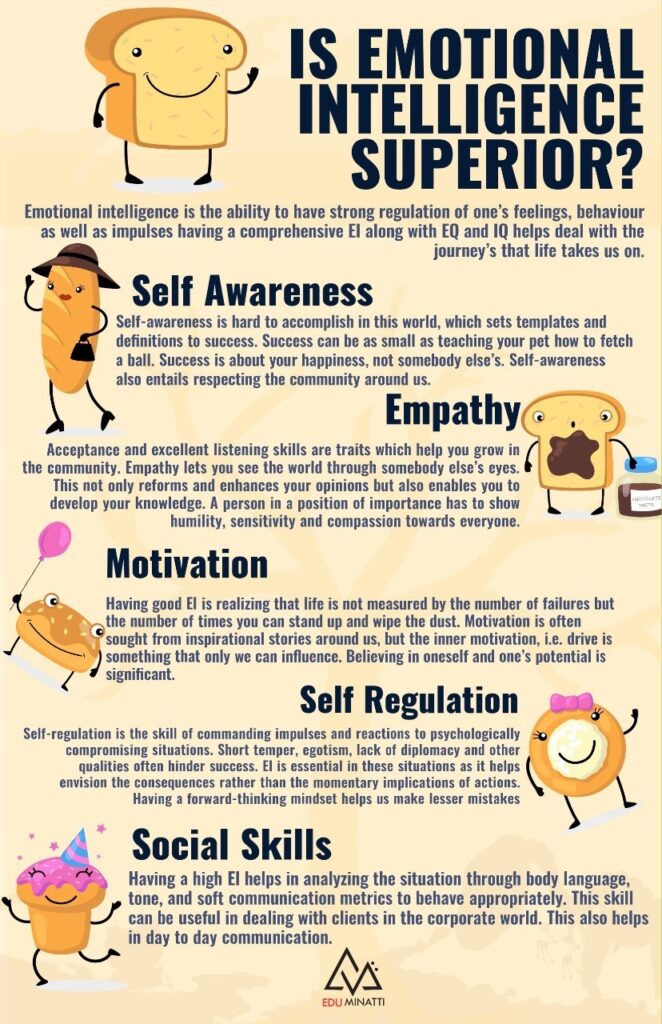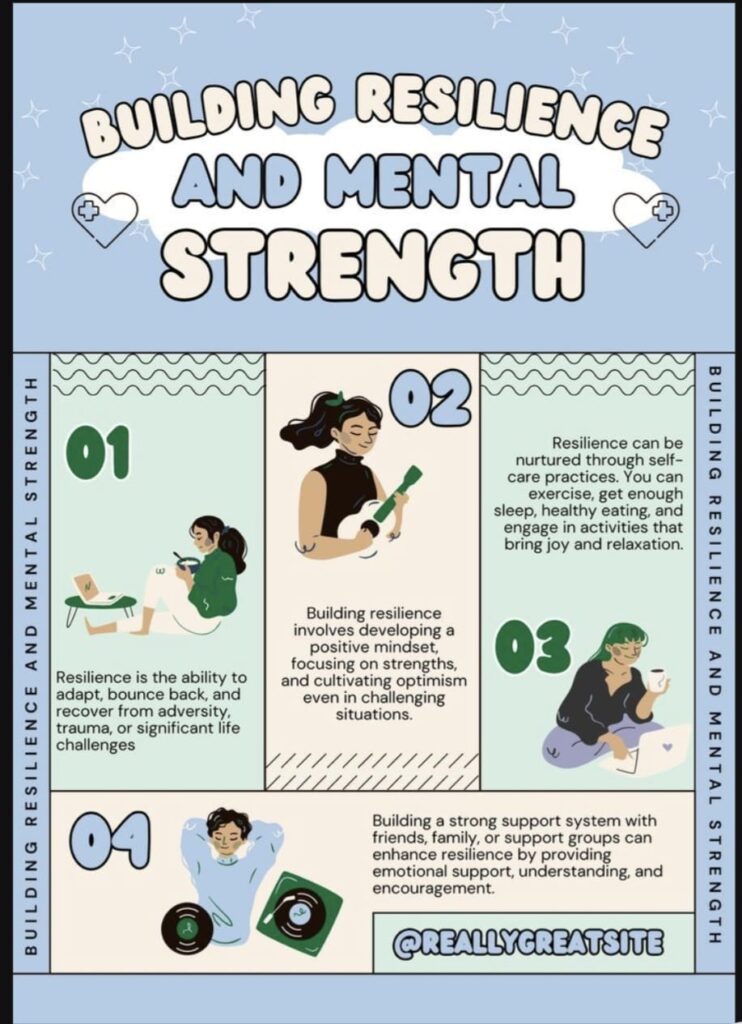Reclaiming the Real Meaning of Strength
We live in a world where emotional strength is often misunderstood. We’re taught how to solve complex equations and write polished résumés, but no one ever hands us a manual on handling heartbreak, disappointment, or inner chaos.
In truth, real emotional strength lies in our ability to feel deeply and still stay grounded, not in pretending nothing affects us. Research from the American Psychological Association shows that resilience isn’t about avoiding emotional pain—it’s about bouncing back through acceptance and adaptive coping.
The pressure to maintain a façade of “having it all together” can lead to what psychologists call emotional suppression, which in turn increases stress and weakens mental health over time.
This article sets out to challenge the misconceptions that surround emotional strength. We’ll explore what nobody told you about owning your emotions, and how to reclaim control over your mind without guilt or fear. It’s time to rewrite the rules—your mind, your rules, after all.
The Misconceptions About Emotional Strength
From a young age, many of us are taught to believe that emotional strength means not crying, not breaking down, and never showing vulnerability. But that’s a myth—one that continues to shape how we relate to ourselves and others.
In reality, emotional suppression can lead to increased psychological distress, and bottling up feelings doesn’t make you strong—it makes you disconnected.
This attitude is especially common in high-pressure environments where mental resilience is mistaken for emotional numbness. The result? People suffer in silence, thinking they’re being strong when they’re actually ignoring important emotional cues.
Then there’s the rise of toxic positivity—a cultural obsession with “good vibes only.” While optimism is healthy, denying negative emotions in favor of constant positivity can be emotionally invalidating and, ironically, make people feel worse.
Another common misunderstanding is equating emotional strength with resistance rather than resilience. Resistance is about fighting emotions, trying to control or avoid them. Resilience, on the other hand, is about flowing with emotional experiences and bouncing back stronger.
The Science Behind Emotional Strength
While emotional strength might feel intangible, it’s actually grounded in neuroscience and psychology. Understanding the science behind how our brain processes emotions can help demystify what it truly means to be emotionally strong.
At the center of it all is the amygdala, the brain’s emotional alarm system, which reacts to fear, stress, and perceived threats. When activated, it triggers the classic fight, flight, or freeze response—a survival mechanism that prepares the body to respond to danger.
However, the key to emotional strength lies in how we manage that response. That’s where the prefrontal cortex comes in. This part of the brain is responsible for decision-making, impulse control, and emotional regulation.
Another important concept is neuroplasticity—the brain’s ability to reorganize and adapt. This means that emotional habits are not fixed; we can rewire our brain to respond more calmly and resiliently through conscious effort.

This visual explores the components of emotional intelligence, such as self-awareness, empathy, motivation, and social skills. It creatively uses illustrated characters to explain how emotional intelligence shapes success and interpersonal growth.
Practices like mindfulness meditation, gratitude journaling, and self-reflection have been shown to increase emotional regulation and psychological resilience over time.
Recent studies in emotional intelligence (EQ) also support the idea that those who can identify, understand, and manage their emotions tend to have better relationships, reduced stress levels, and higher satisfaction in life.
The Power of Self-Awareness
At the heart of emotional strength lies a skill most people underestimate: self-awareness. It’s more than just knowing your likes and dislikes—it’s about recognizing your emotional triggers, your patterns of reaction, and how your internal world influences your external behavior.
According to Daniel Goleman, the psychologist who popularized emotional intelligence, self-awareness is the cornerstone of EQ, and without it, emotional growth is nearly impossible.
So, what does being self-aware actually look like? It means noticing when you’re feeling overwhelmed rather than snapping at someone and being able to name your emotion instead of stuffing it down. In fact, research shows that simply labeling emotions can reduce their intensity—a process known as affect labeling.
The act of naming a feeling, like “I’m anxious” or “I’m frustrated,” engages the brain’s reasoning centers and helps bring emotional balance back online.
It gives you the space to choose your response instead of being ruled by emotion. This idea is reflected in the concept of emotional agility, which emphasizes flexibility in how we think and feel, rather than rigid self-control.
Building self-awareness doesn’t happen overnight. It’s a practice that requires intention. Journaling, meditation, and regular self-check-ins are all evidence-backed techniques that help you tune into your internal state. Over time, these practices increase your emotional clarity, reduce impulsive decisions, and strengthen your resilience in the face of stress.
Boundaries Are Not Weakness
One of the most powerful—but often misunderstood—acts of emotional strength is the setting of boundaries. Too often, we associate setting boundaries with being selfish, rude, or overly assertive.
Many of us struggle with boundaries because we were never taught that it’s okay to say “no” without guilt. We confuse being agreeable with being kind and end up sacrificing our own needs to avoid conflict.
Healthy boundaries are especially important in relationships—romantic, familial, or professional. According to therapists, clear boundaries create more honest and respectful connections.
Importantly, setting boundaries is not the same as building walls. It doesn’t mean shutting people out or avoiding emotional intimacy. In fact, strong boundaries enable deeper, more trusting relationships because they’re rooted in mutual respect and emotional maturity.
So no, boundaries are not weakness—they are the framework of emotional strength. They don’t make you cold; they make you whole.
The Daily Habits That Build Emotional Strength
Emotional strength isn’t something you’re born with—it’s something you build, moment by moment, through your habits. Like physical strength, it requires consistent practice. Fortunately, small daily habits can make a big impact on your emotional resilience, mental clarity, and self-regulation over time.
One of the most powerful daily tools is mindfulness. Just a few minutes of mindful breathing or meditation each day helps quiet the mental noise and increases your ability to sit with difficult emotions without being overwhelmed.
Mindfulness strengthens your prefrontal cortex, the part of your brain responsible for self-awareness and emotional regulation, making it easier to respond calmly instead of reacting impulsively.
Journaling is another underrated habit that builds emotional clarity. By writing down your thoughts and feelings—even if just for five minutes—you begin to see patterns in your emotional responses. You gain perspective, identify triggers, and create a safe space to process your inner world. Over time, journaling becomes a mirror that reflects your growth.

This infographic emphasizes the importance of resilience, self-care, and maintaining a positive mindset to navigate life’s challenges. It highlights how emotional support, optimism, and healthy routines can build lasting mental strength.
Practicing gratitude can also rewire your brain for emotional strength. When you intentionally focus on what’s working in your life—even during hard times—you activate brain circuits linked to optimism and resilience. Gratitude isn’t about ignoring pain; it’s about making space for joy alongside it.
Movement matters too. Regular exercise, whether it’s walking, yoga, or strength training, releases endorphins and reduces stress hormones like cortisol. Physical activity has been shown to improve mood and boost emotional stability, reminding us that the body and mind are deeply connected.
Lastly, don’t underestimate the power of healthy social connections. Having even one person you can be emotionally honest with improves mental health and lowers stress. Surrounding yourself with emotionally safe people supports your growth and reinforces your boundaries.
Frequently Asked Questions About Emotional Strength
What is emotional strength?
Emotional strength is the ability to understand, manage, and respond to your emotions in a healthy and constructive way, even under stress or adversity.
Is emotional strength the same as suppressing emotions?
No, emotional strength is not about bottling up emotions. It’s about acknowledging them without letting them control your actions or decisions.
Can emotional strength be developed?
Yes, emotional strength is a skill that can be built over time through practices like mindfulness, self-awareness, and healthy habits.
Why is self-awareness important for emotional strength?
Self-awareness helps you recognize emotional patterns, understand triggers, and make conscious choices rather than reacting impulsively.
How do boundaries contribute to emotional strength?
Setting boundaries protects your emotional well-being and reinforces your sense of self-respect and control in relationships.
Is being vulnerable a sign of weakness?
No, vulnerability is a sign of emotional courage. Being open about your feelings allows for deeper connections and personal growth.
What are some daily habits that build emotional strength?
Journaling, mindfulness, gratitude, regular exercise, and connecting with supportive people are powerful habits for emotional resilience.
Can emotionally strong people still feel anxious or sad?
Absolutely. Emotional strength doesn’t mean never feeling negative emotions—it means knowing how to navigate them constructively.
How does journaling improve emotional strength?
Journaling helps you process emotions, recognize patterns, and gain clarity, which all support stronger emotional regulation.
What is emotional agility?
Emotional agility is the ability to be flexible with your thoughts and feelings so you can respond to life in a value-driven, thoughtful way.
How can mindfulness help with emotional regulation?
Mindfulness teaches you to observe your emotions without judgment, giving you space to choose your response rather than reacting automatically.
Why do people struggle to set boundaries?
Many people were raised to associate boundaries with conflict or guilt, but in reality, boundaries are healthy and necessary for emotional well-being.
Can emotional strength improve relationships?
Yes. Emotionally strong individuals tend to communicate more clearly, set healthy limits, and build deeper, more respectful relationships.
What role does gratitude play in emotional health?
Practicing gratitude shifts your focus from what’s lacking to what’s present, boosting resilience and promoting a positive emotional state.
How can someone start building emotional strength today?
Begin with small steps like naming your emotions, journaling your thoughts, or practicing 5 minutes of mindfulness each day.
Is emotional strength related to mental health?
Yes, emotional strength is a core component of good mental health. It supports resilience, reduces stress, and improves overall emotional balance.
Do emotionally strong people avoid conflict?
Not necessarily. They’re more likely to approach conflict calmly, communicate their needs clearly, and seek resolution without aggression.
Is it okay to ask for help and still be emotionally strong?
Yes. Knowing when and how to ask for support is a key part of emotional maturity and strength.
What is the difference between emotional strength and emotional intelligence?
Emotional intelligence includes emotional strength, but also encompasses empathy, social skills, and understanding others’ emotions.
Can social media affect emotional strength?
Yes. Overuse or unhealthy comparisons can undermine self-worth. Emotionally strong individuals set limits and curate a mindful digital space.
“Emotional strength is not about suppressing your feelings; it’s about having the courage to feel them, understand them, and grow through them.”
– Authored by Mridu Mishra





